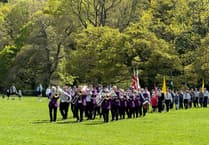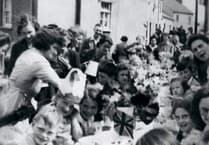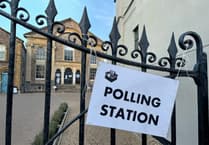THE recently published findings of the 2021 census were a wake-up call to church leaders like myself.
Twenty years ago, 72 per cent of people in England and Wales said their religion was Christian.
In last year’s census that percentage had dropped to 46 per cent. Significantly, this means that less than half of the people in England and Wales identify with the Christian religion.
This opens several interesting questions. If a minority now identify as Christian should the profile given to the Christian religion in public life be scaled back?
Should we cancel Radio 4’s Thought for the Day and the Daily Service? Should the Church of England bishops who occupy seats in the House of Lords be stood down?
As a non-conformist minister, I know my forebears would have called for constitutional change, and for the separation of church and state.
But having seen how difficult it is to unpick our 27-year relationship with the EU I can’t imagine the herculean effort needed to tease apart the 400+ year old relationship of church and state!
Then I turn to our congregation here in Crediton.
Does this shift in our country’s beliefs change what we are doing here? Does it invalidate the way of life our congregation is pursuing together?
Is it the beginning of the end for our church? More positively, perhaps this moment helps us reflect afresh on what our church is for.
Many churches across the country are involved in wonderful work. Local churches have often been the first to spot unfolding need in our communities and have pioneered Foodbanks and Warm Spaces.
Churches run good toddler groups and lots of activities for children and teenagers. They provide spaces for connection in our communities, alleviating isolation, especially among the elderly.
For me, though, there is another role for the churches, and for our church on Crediton’s High Street.
We want to help more people investigate their spiritual hunger, their sense that there is more to life than what they can see and touch and taste, their intuition that there is something they can give themselves to which is even more fulfilling than the dream of a successful career and a comfortable home.
I would love for more people to see our church as a safe community in which to explore their own spiritual well-being, to try praying alongside others, to go deeper into their experiences of the love that reverberates behind all things and that we dare to call "God".
Even as religious identity is changing might there still be a longing in us for spiritual depth and sustenance?
I would love for our churches to be able to help more people connect with both that longing and with others similarly open to the "more" that might lie behind all we see and know.
James Gregory
Crediton Congregational Church





Comments
This article has no comments yet. Be the first to leave a comment.